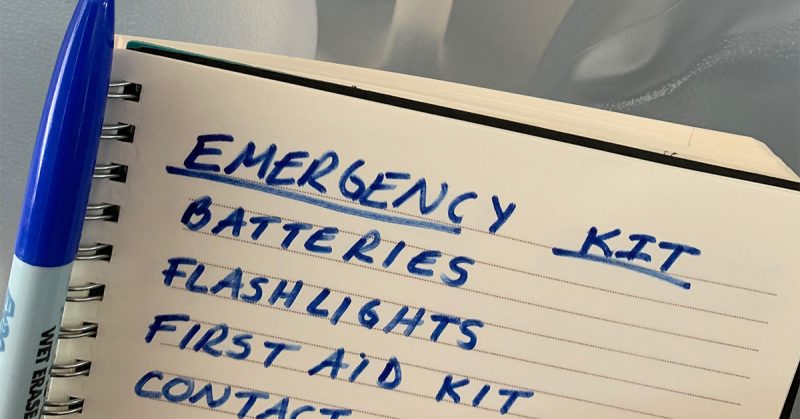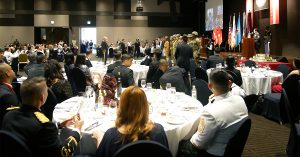In our first month in New Orleans, a thunderstorm dumped eight inches of rain on us in a period of just a few hours. We had no idea how quickly this city can flood until we were told by our military friends and locals. Were it not for them, I would not even have known to move my car to higher ground. I am so very thankful for that tip – it literally saved my car! That same week, we found ourselves in the path of Tropical Storm Barry, which could have been a Category 1 hurricane. As military families, we move all over the world, and we need to be prepared should disaster strike.
Hurricanes, tornados, wildfires, earthquakes, floods…none of us are immune to the forces of nature. While it is much more pleasurable to plan for a fun vacation, planning for these types of emergencies is essential and can bring peace of mind to you and your family. As part of the military community, we have the added benefit of learning how to navigate these situations, not only through resources like Military OneSource, but also by leaning on and learning from each other.
The most critical step in dealing with this topic is to talk about it with your family and come up with a plan. Clothing, supplies, documents, pets, children, evacuation routes, meeting places…the list can go on and on. It may seem daunting at first, but researching, creating your plan and organizing for an emergency is the best way to prepare.
Your military installation will also have an emergency management plan. The purpose of this plan is to make sure the installation and its residents are safe after an emergency. Again, these plans will depend on where you are in the world and what disasters may occur there, so it is best to familiarize yourself with each installation’s emergency management plan. It is also a good idea to familiarize yourself with the emergency family assistance center at your military installation and find out what services they provide.
In the aftermath of a disaster, safety always comes first. Find a safe and secure place for you and your family and check in with your command. Once you are ready to assess and move into action, know that there are many resources available depending on your needs. It is a good idea to keep a list of phone numbers and/or web addresses for the different agencies that can help you and your family.
No matter where you live, be mission-ready for emergencies and disasters:
- Make a plan and discuss it with your family.
- Be familiar with helpful resources.
- Reach out to your military community for help and to help others.
- Remember to review your plan and alter it as needed with every PCS.
While we cannot stop the forces of nature, we can be prepared for what may come.




